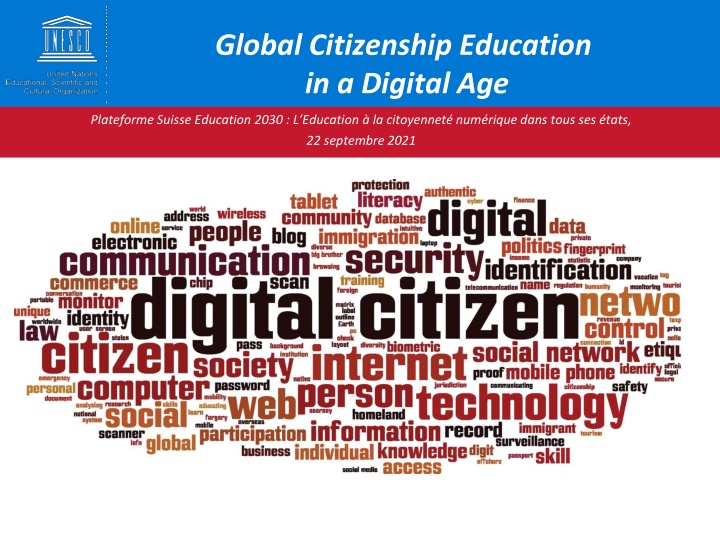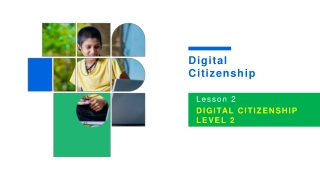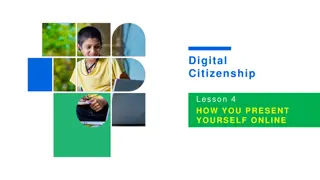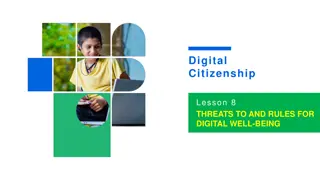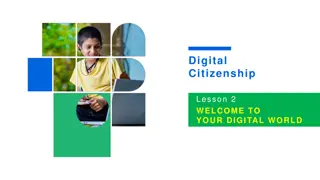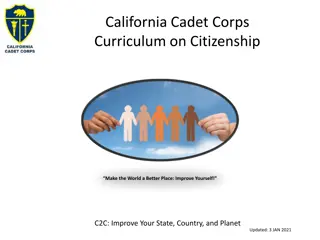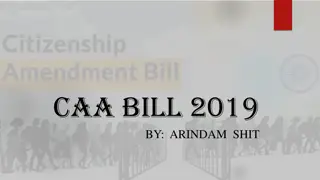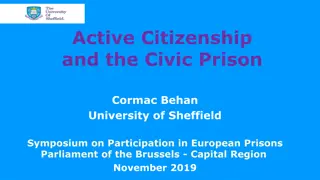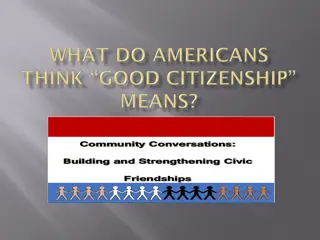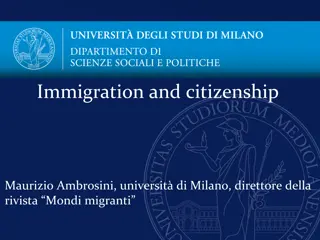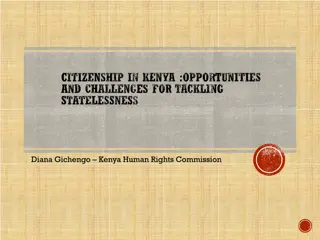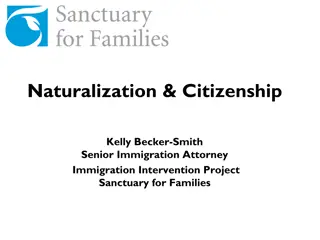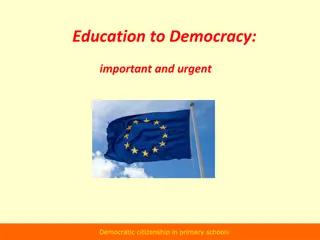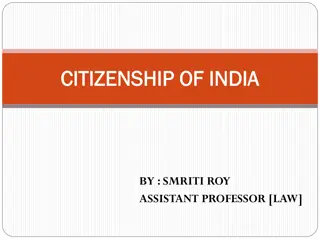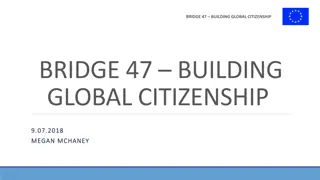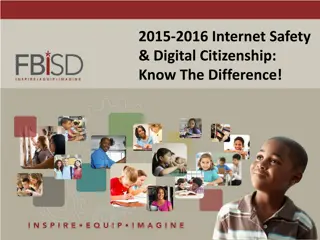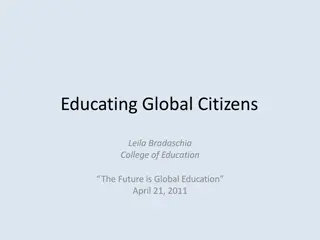Global Citizenship Education in a Digital Age: Challenges and Responses
Challenges in digital societies include blurring responsibility notions, impact of digital tech, COVID-19 effects, and spread of hateful narratives. Educational responses aim to combat misinformation, promote diversity, develop critical thinking, and prepare individuals for current challenges, emphasizing ethical digital skills. UNESCO's work focuses on Global Citizenship Education for active societal participation both online and offline, aligning with Quality Education vision and transformative learning approaches. Selected work examples include guidelines for teachers, updated Media and Information Literacy Curriculum, hate speech addressal initiatives, and global education conferences.
Download Presentation

Please find below an Image/Link to download the presentation.
The content on the website is provided AS IS for your information and personal use only. It may not be sold, licensed, or shared on other websites without obtaining consent from the author.If you encounter any issues during the download, it is possible that the publisher has removed the file from their server.
You are allowed to download the files provided on this website for personal or commercial use, subject to the condition that they are used lawfully. All files are the property of their respective owners.
The content on the website is provided AS IS for your information and personal use only. It may not be sold, licensed, or shared on other websites without obtaining consent from the author.
E N D
Presentation Transcript
Global Citizenship Education in a Digital Age Plateforme Suisse Education 2030 : L Education la citoyennet num rique dans tous ses tats, 22 septembre 2021
Challenges in our digital societies The blurring of traditional notions of responsibility and citizenship as a result of the information flow; The lack of understanding of the impact of digital technologies on our lives (ex: artificial intelligence and data privacy); The accelerating effect of COVID-19 on misinformation and disinformation ; The amplification and spread of divisive and hateful narratives. 2
Educational responses Education is the first line of defense against misinformation, disinformation speech: and hate Fosters a sense of belonging to a common humanity, solidarity and respect for diversity; Promotes socio-emotional skills in a digital age; Develops information literacy (MIL); critical thinking through Media and Prepares individuals to engage with the challenges of today s world. 3
Educational responses in a digital age Learning to use technologies in an ethical, inclusive, responsible and equitable way Find, access, use and create information effectively Engage with other users and with content in an active, critical, sensitive and ethical manner Be aware of one s rights Navigate the ICT environment safely and responsibly 4
UNESCOs work: Global Citizenship Education in a Digital Age Global citizenship education (GCED) is at the heart of UNESCO s response to today s challenges GCED is part of UNESCO s vision of Quality Education and target 4.7: The development of learners knowledge, skills, values and attitudes in view of their active participation in the peaceful development of their societies; A transformative approach whereby school educators, teachers, children and youth learn to live citizenship both on- and offline. 5
Selected examples of our work New Guidelines for teachers trainers on Global Citizenship Education in a Digital Age (forthcoming) GCED Updated Media and Information Literacy Curriculum (2021) Think Before Sharing campaign MIL Global Education Ministers Conference on Addressing hate speech through education, 26 October 2021 Hate speech 6
THANK YOU UNESCO stands ready to support Vibeke Jensen UNESCO Director of Division for Peace and Sustainable Development https://en.unesco.org/themes/gced
